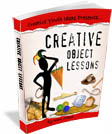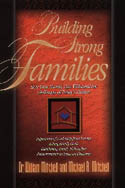To be most effective in your Bible study with youth:
Involve rather than inform
Suppose you had climbed a mountain and wanted to convey to your students the exhilaration of reaching the top and the relief at discovering that the grueling work was really worth the effort. Would it be better to tell them about your climb or take them to the top of the mountain with you? Taking them to the top would take more time than saying: “The results are worth the climb.” But which would impact their lives more deeply? It’s the same with Bible study: the more youth do for themselves, the more meaningful their learning becomes.
Listen rather than lecture
The one who talks is the one who learns. When you ask questions and make assignments that guide youth to express Bible understanding, they learn. It’s easy to let lectures go in one ear and out the other, but youth remember what they themselves say. They live what they commit to.
Direct rather than dictate
“Is this television program good for me?” “What is sin?” “How can I know the will of God?” Rather than telling youth what to do, guide them to Bible verses that address their questions. As youth make their own choices, they gain confidence in their ability to read, understand, and live the Bible for themselves. And they grow close to God who authored the Bible.
Be Active rather than passive
Youth tend to be full of energy. When there is an option to make things active, it keeps their attention and helps release their energy.
Make it cooperative rather than individual
Todays youth prefer to work in groups rather than as individuals. It takes off the pressure and allows the more quiet ones to contribute in a small setting that may not speak before the entire group.
Have a single objective rather than multiple truths
Choose one objective. Everything you do should reinforce, explain, support, clarify, apply to that objective.
Focus on changed lives rather than memorized facts
You don’t teach the Bible. You teach youth. It’s not what you have given them that matters, but what they leave with. Its not what you do, but what they do that evaluates an effective lesson.
Be an example in your expectations
Your attitude is contagious. If you like Bible study, your students will tend to like it also. If you present a learning activity with interest and expectation, youth will participate and like it. But if you say, “This was in the book and I know you will think it’s childish and dumb… “ they will think it’s childish and dumb. Expect great insight based on Bible truths. Your students will sense your expectation and fulfill it.
 MORE IDEAS? See “Creative Object Lessons”
MORE IDEAS? See “Creative Object Lessons”
200 page e-book that explains everything you need to know when planning your very own object lessons. It contains 90 fully developed object lesson ideas and another 200 object lesson starter ideas based on Biblical idioms and Names / Descriptions of God.


 Be sarcasic
Be sarcasic Use Sarcasm
Use Sarcasm Center on God
Center on God